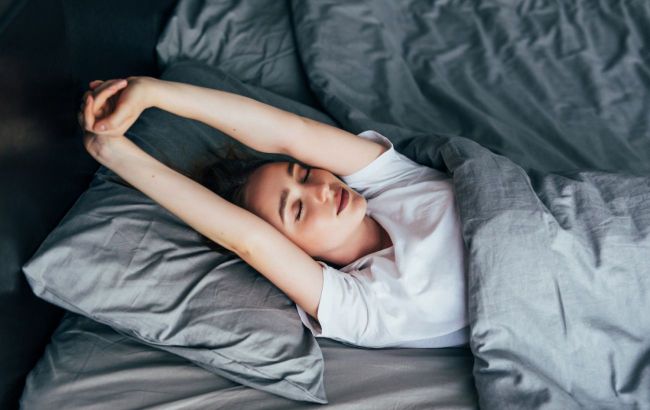6 ways to help you wake up early every morning
 Ways to help you wake up early every morning (photo: Freepik)
Ways to help you wake up early every morning (photo: Freepik)
Waking up early can be difficult, especially if you go to bed late. Experts at Real simple have identified 6 ways to help you wake up quickly and stress-free in the morning.
Steven Henry Feinsilver, MD, said that teenagers and young adults (ages 15 to 25) tend to be “night owls,” while older adults (ages 70 to 80) are “morning people.”
Trying to become a “morning person” may not be the best move for everyone. In particular, if you experience daytime sleepiness, it may be a symptom of a health problem.
The expert also named 6 tips that will help you wake up earlier and make it a permanent habit.
Identify your motivation
Identifying your reasons for becoming a morning person is key to making changes.
Therapist Jeanette Lorandini said that it can also give you an extra boost of energy when you feel tired or reluctant to get out of bed.
Create a sleep schedule
Once you've set your alarm with your ideal wake-up time, do your best not to hit the snooze button.
No matter how bad you feel, get up when your alarm goes off.
Then, depending on how many hours of sleep you need, determine when you should sleep that night. For example, if your goal is to get seven hours of sleep, don't go to bed before midnight. It may be difficult to stay awake until then, but after that, your homeostatic sleep drive, i.e. your body's natural need for sleep, will kick in and your body will adjust to the new schedule.
Start the day with light
Our internal biological clock is directly influenced by light, so exposing ourselves to plenty of light throughout the day is important to become a “morning person.”
When you wake up, have a coffee by the window or, if the weather permits, go outside for a light walk.
Both lighting and physical activity will help wake up your brain and body, ultimately making the morning more enjoyable.
Follow the rules of sleep hygiene
The worse the quality of your sleep, the harder it will be to get up in the morning. That's why you should follow a few basic rules of healthy sleep hygiene. In particular, avoid caffeine six hours before bedtime.
According to Dr. Feinsilver, drinking caffeine late at night can make it harder to fall asleep. While alcohol may make you feel tired and sleepy, it will actually disrupt deep sleep in the middle of the night by metabolizing in the body.
Other good sleep hygiene habits include keeping your room dark and cool, using fans or humidifiers, blocking out noise pollution, and avoiding long periods of screen time before going to bed.
Enjoy your routine in the morning
By changing the way you start and end your day, you'll find it easier to get up earlier. When you wake up, take time for yourself to do something positive that motivates you for the day.
Whether it's journaling, stretching, listening to music, or practicing your exercises, do whatever helps you feel refreshed and ready to face the day.
If you actually do something enjoyable and start to enjoy the morning time you give yourself, you'll be more likely to get out of bed at the same time day after day.
In the evening, spend an hour before bed doing something relaxing away from the bed, such as reading or listening to music.
Stay consistent even on weekends
When you're trying to form new habits, like waking up early, consistency is key because it creates a sense of stability and predictability.
Practicing the same behavior over time helps build strong neural pathways.
It also helps to break old patterns and create new ones that are more aligned with goals and desires. With this in mind, avoid going to bed an hour after waking up, even on weekends.
For example, if you need to get up at 6 a.m. on weekdays, don't go to bed after 7 a.m. on Saturdays and Sundays. Otherwise, you won't be able to fall asleep on Sunday night, which can hinder your efforts to become a “morning person.”
This material is for informational purposes only and should not be used for medical diagnosis or self-treatment. Our goal is to provide readers with accurate information about symptoms, causes, and methods of detecting diseases. RBС-Ukraine is not responsible for any diagnoses that readers may make based on materials from the resource. We do not recommend self-treatment and advise consulting a doctor in case of any health concerns.

